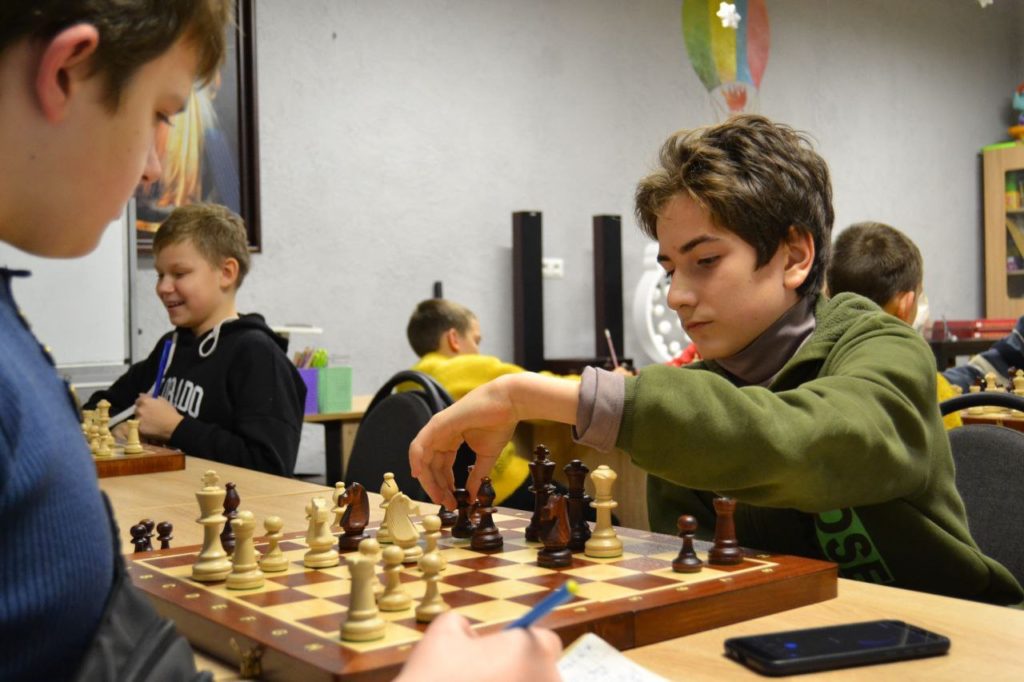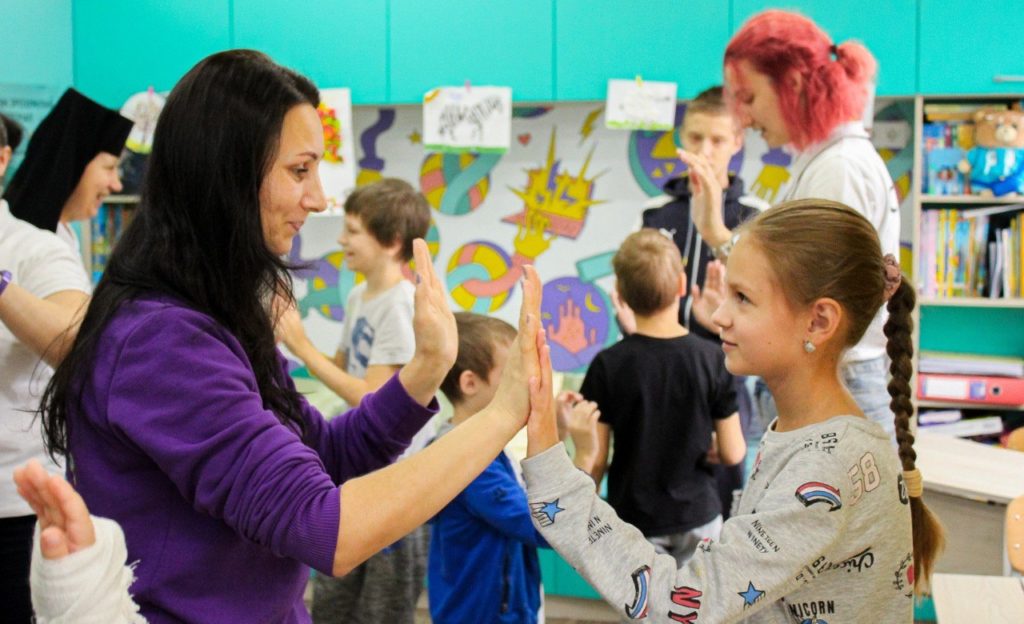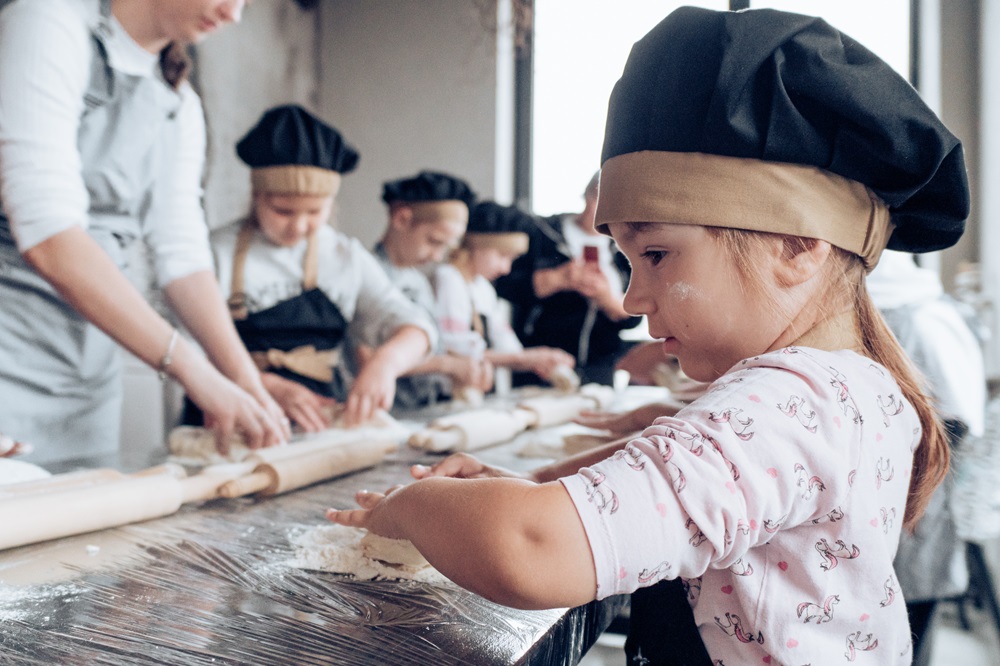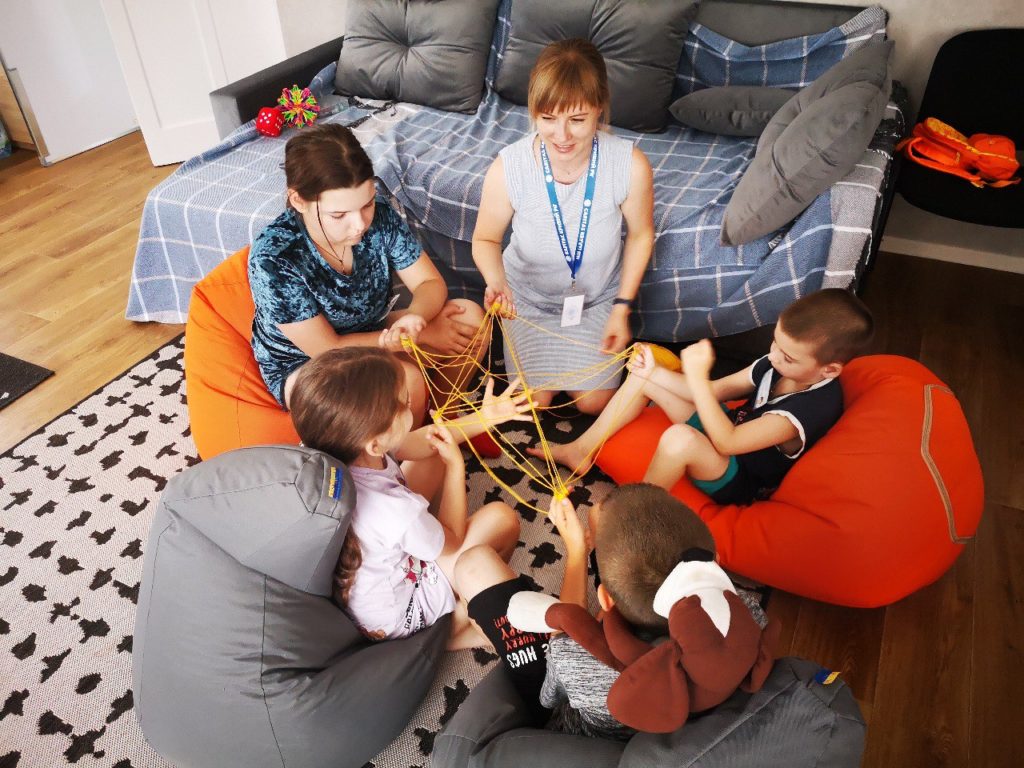Goal: to develop the potential and capabilities of children and youth, empower their rights and abilities, promote their personal development, self-realization and resilience.
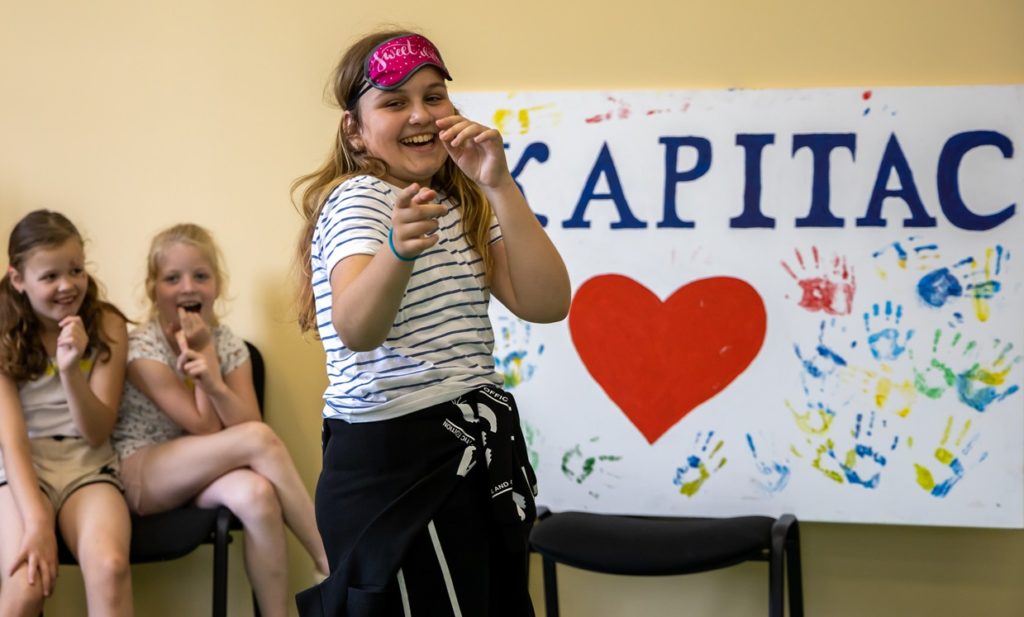
The main strategic areas of work include both humanitarian, humanitarian and stabilization and social development interventions:
- Providing a safe, inclusive and supportive environment for children affected by war.
- Providing services of social and emotional learning, emotional intelligence development, communication skills, psychosocial support, child safety and protection training.
- Ensuring access to material and technical support and curricula, including non-formal education and catching up on educational losses.
- Providing additional specialized educational and developmental services, educational needs catching up, education, career guidance, catching up with gaps in social and life skills.
- Developing safe, supportive and enabling family environment.
- Strengthening integration, cultural formation of children and youth, forming social activism, financial literacy and environmental education.
- Ensuring the quality of psycho-social, social and educational and other services for children and families with children through professional development of the staff.
- Analyzing, harmonizing and improving the standards of work, methodological approaches, technologies and principles implemented by Caritas within the program.
- Development and implementation of innovative approaches, methodologies and techniques.
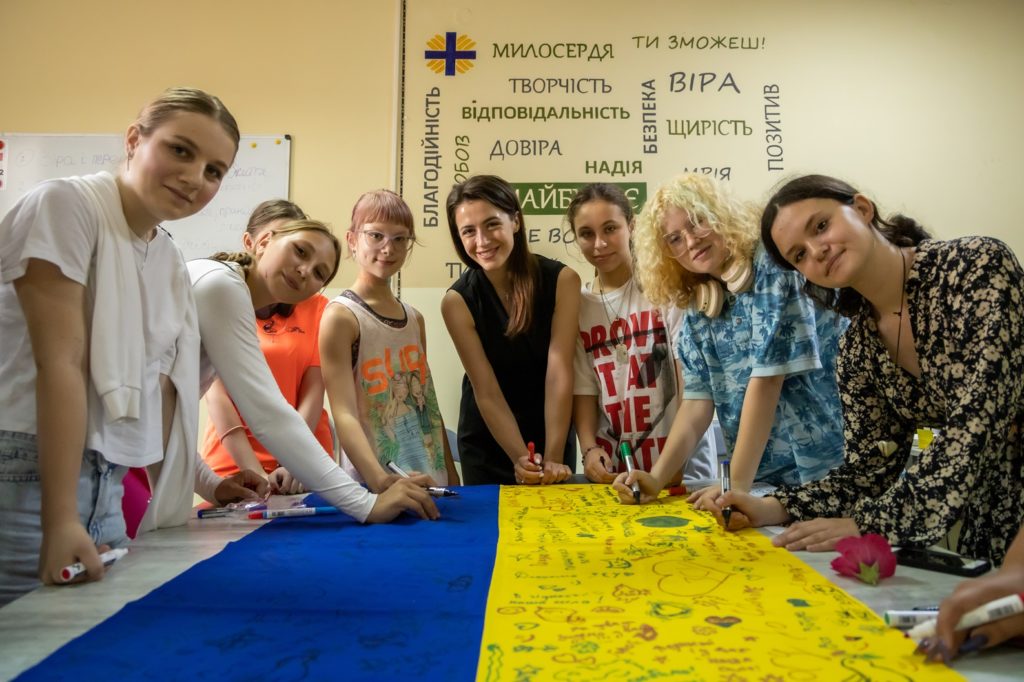
152 thousand services were provided by the program in 2023.
We worked with:
- 46,104 children and adolescents,
- 10,413 parents and guardians,
- 13,206 teachers and participants in the educational process.
To the projects activities have been involved:
- 860 Caritas staff members with qualifications in pedagogy, psychology and inclusion,
- 800 young volunteers.
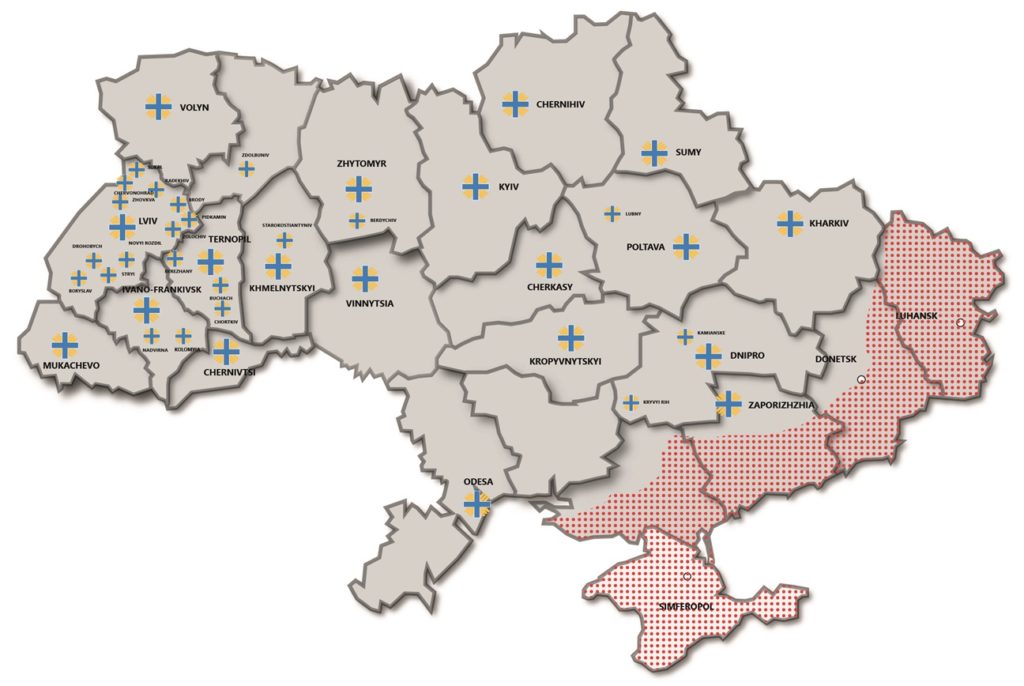
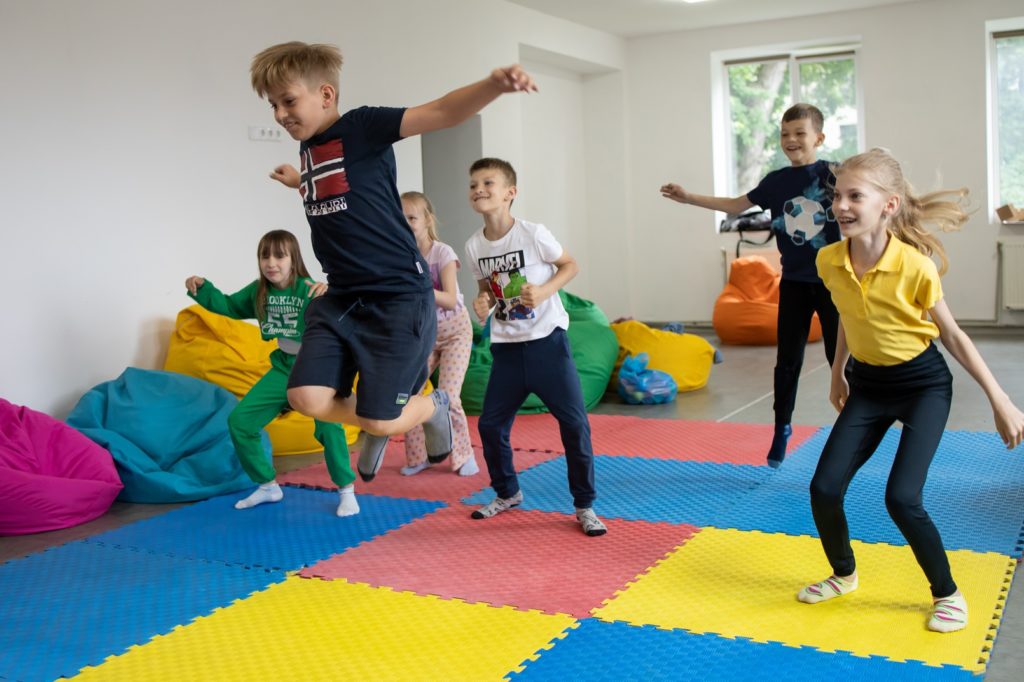
21 projects implemented by the program with the help of donors and partners in 2023 and 2024:
📌 Children’s Centres and Child Friendly Spaces in the network of Caritas Ukraine charitable organisations
1. “Children and War” (Caritas Germany) ✅ active
2. “Preparing children and youth for the future” (Caritas Austria, Caritas Spain, KinderMission) ✅
3. “Child-friendly space in 16 locations” (Caritas France, Nunciature, Caritas Sweden) ❎ completed
4. “Child Friendly Space in Berdychiv” (Australian Federation of Ukrainian Organisations) ✅
5. “Child-friendly space in Pidkamin” (Caritas Slovenia, Caritas Norway) ✅
6. “Psycho-social support for the war affected children (СFS in 3 locations, CNEWA, Caritas Norway) ✅
7. “Responding to the critical situation of IDPs and affected local population: strengthening communities in eastern and western regions of Ukraine” (UHF) ✅
8. Child-friendly spaces in the framework of the Emergency Appeal 2024 ✅
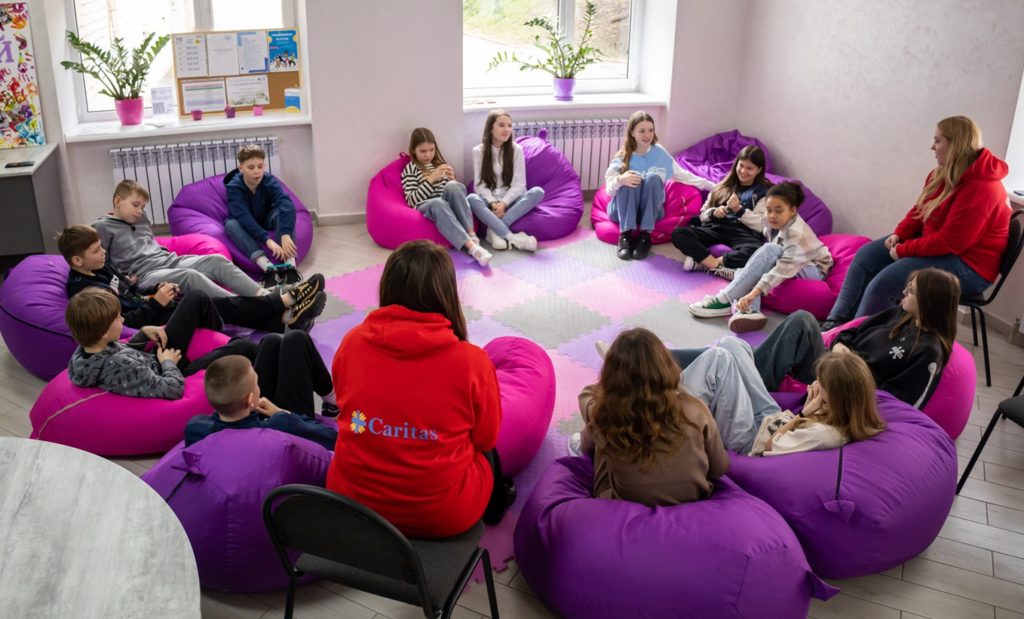
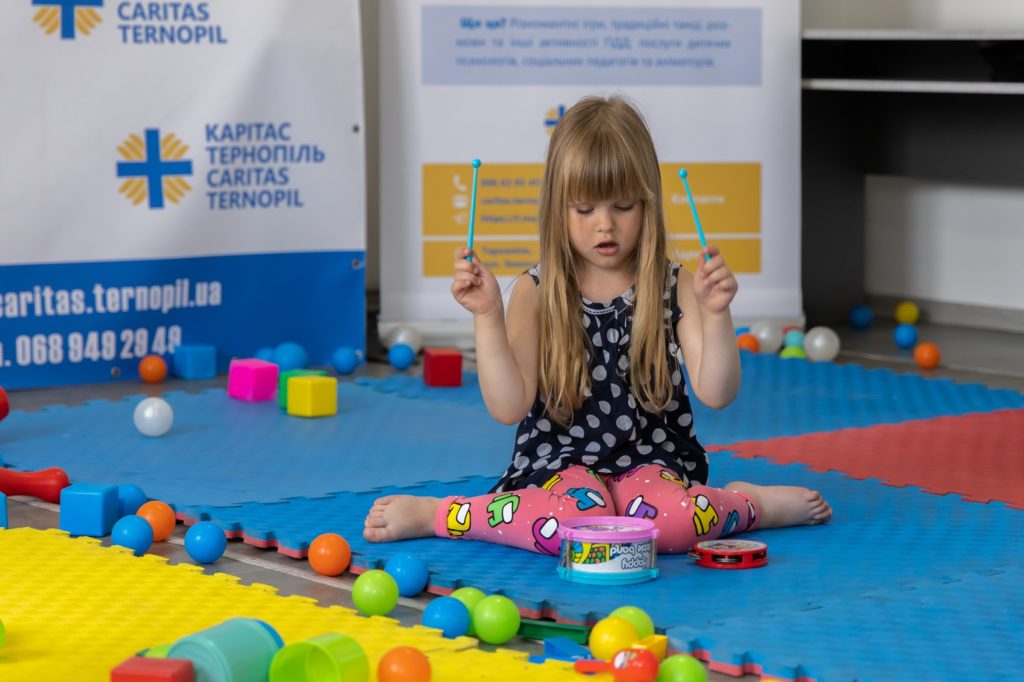
9. Child-friendly spaces within the framework of the project “Specialized support and assistance to children and people with disabilities and their families during the crisis response in Ukraine (Sumy and Chernihiv regions)” (Caritas France) ✅
10. Humanitarian Protection for Conflict Affected People in Ukraine (NIN, Caritas Austria) ✅
11. Enabling meaningful access to protection and basic needs for conflict affected populations in front-line areas in north and south-central Ukraine (ECHO, Caritas Austria) ✅
12. Crisis Support for People Affected by the Conflict in Kharkiv, Ukraine – current (CRS) ✅
📌 Families in crisis accompaniment
13. “A strong family for every child” (Caritas Korea) ✅
14. “New Safe Home” (Australian Federation of Ukrainian Organizations) ✅
📌 Caritas rooms in educational institutions
15. “Resilience and Development: Psychosocial support for children, parents and teachers in schools in Ternopil, Khmelnytskyi and Odesa regions” (Caritas Austria, Renovabis) ✅
16. “Education cannot wait: psychosocial support for children in schools” (UNICEF Ukraine) ❎
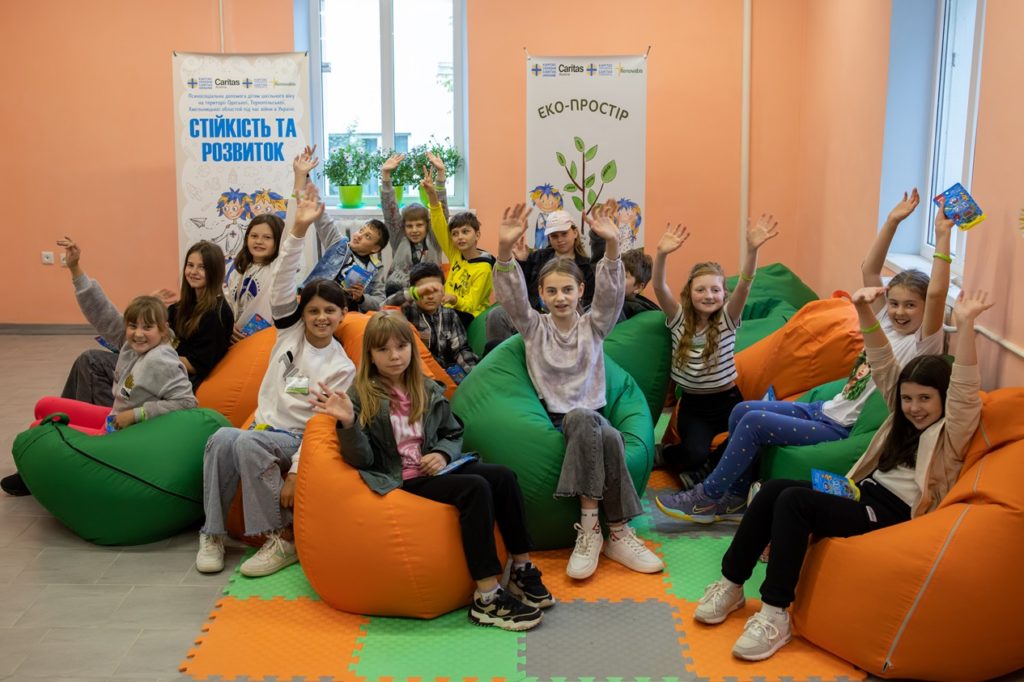
📌 Innovations
17. “Methodological educational project” (Caritas Korea) ✅
📌 Camps and recreation
18. Rehabilitation and recreational camps for children in Italy and Ukraine (Caritas Italy, Caritas Austria, Caritas Spain, KinderMission, UNESCO) ✅
19. Children’s football “Caritas Cup 2023”, “Caritas Cup 2024” (volunteer initiative, Caritas Romania, Caritas Norway) ✅
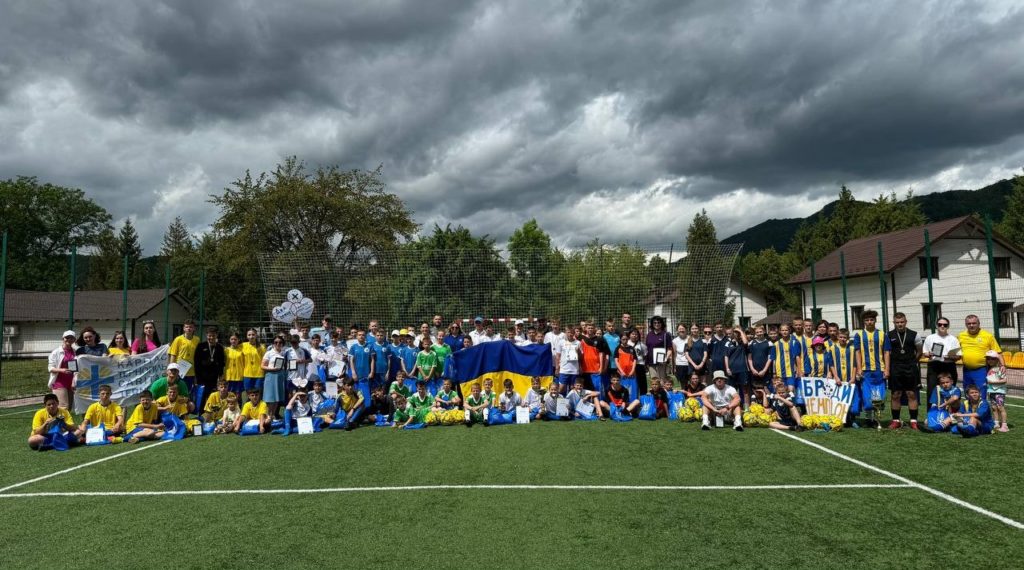
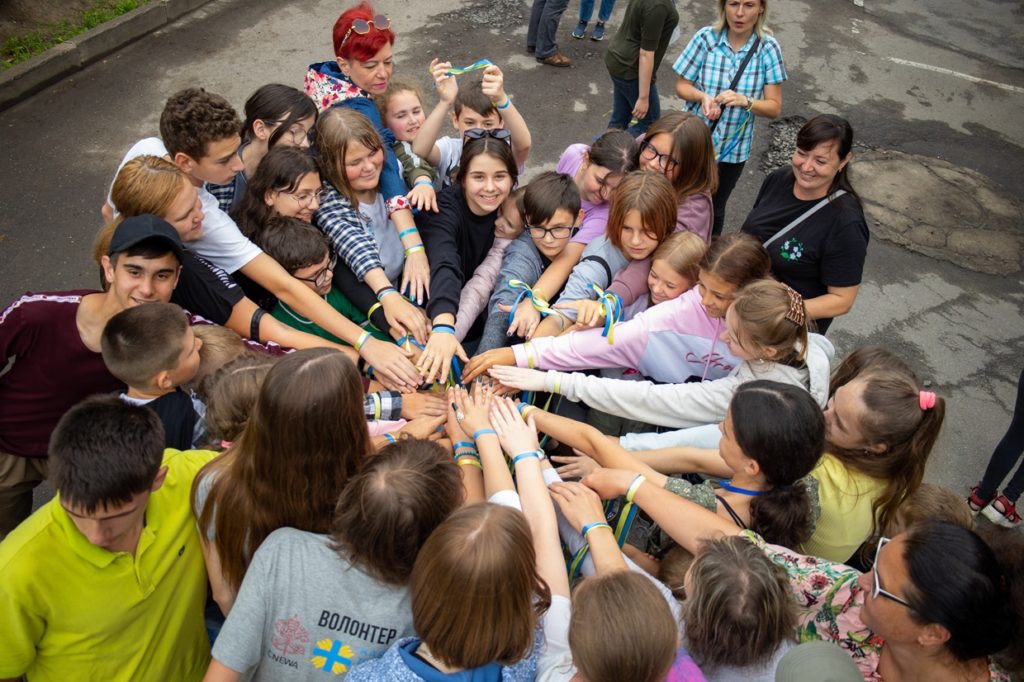
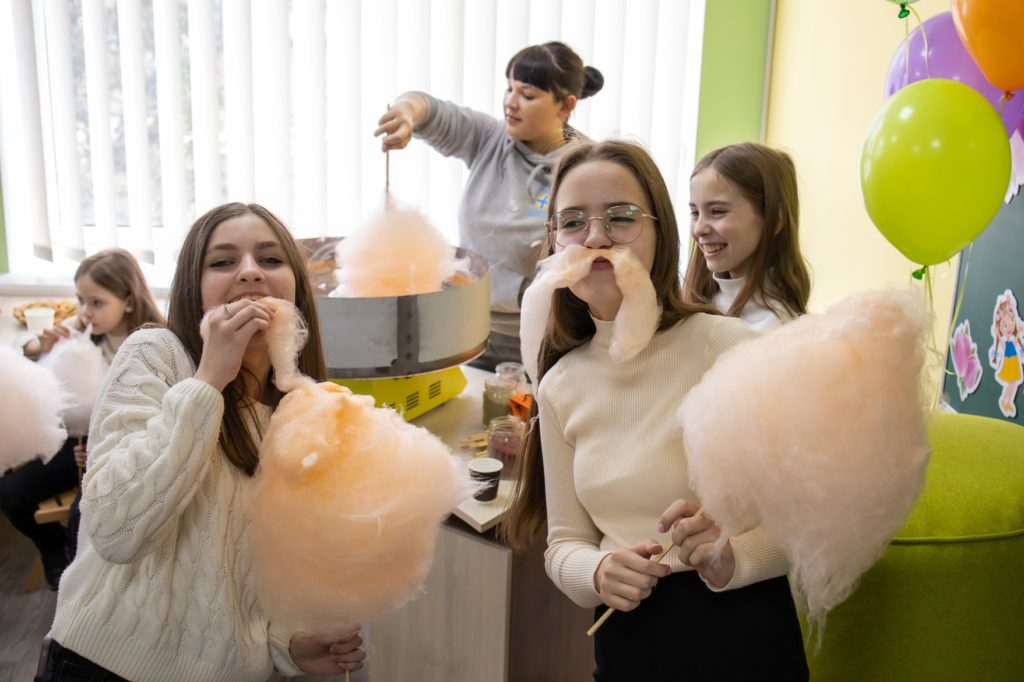
📌 Capacity building
20. “Ensuring the sustainability of methodological approaches in work with children and youth” (Caritas Germany) ❎
📌 Advocacy component
21. “Advocacy for sustainable provision of social services for vulnerable populations affected by the conflict in Ukraine in five Caritas centers within the framework of decentralization reform” (BMZ, Caritas Germany) ✅
In the frameworks of the program’s projects, financial and methodological support was received by:
- 50 “Child-friendly spaces”
- 42 Caritas rooms in secondary schools
- 40 early development groups for preschoolers in parishes and communities
- 14 social centers for children and youth
- 2 kindergartens and 1 primary school licensed as educational institutions
- 2 programs of social support for families with children in crisis situations
- 1 shelter for internally displaced mothers with children
- 1 educational program on the online-platform “Prometheus”
https://prometheus.org.ua/course/course-v1:CARITAS+STRESS101+2023_T2
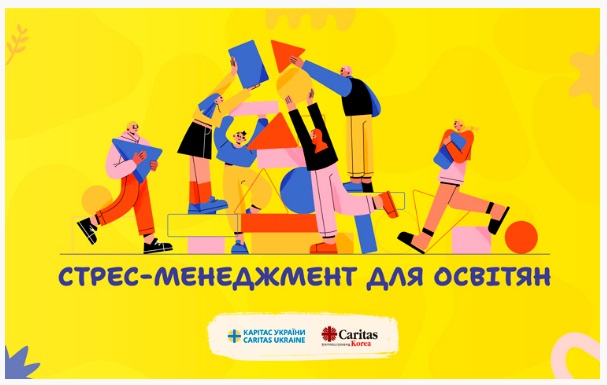
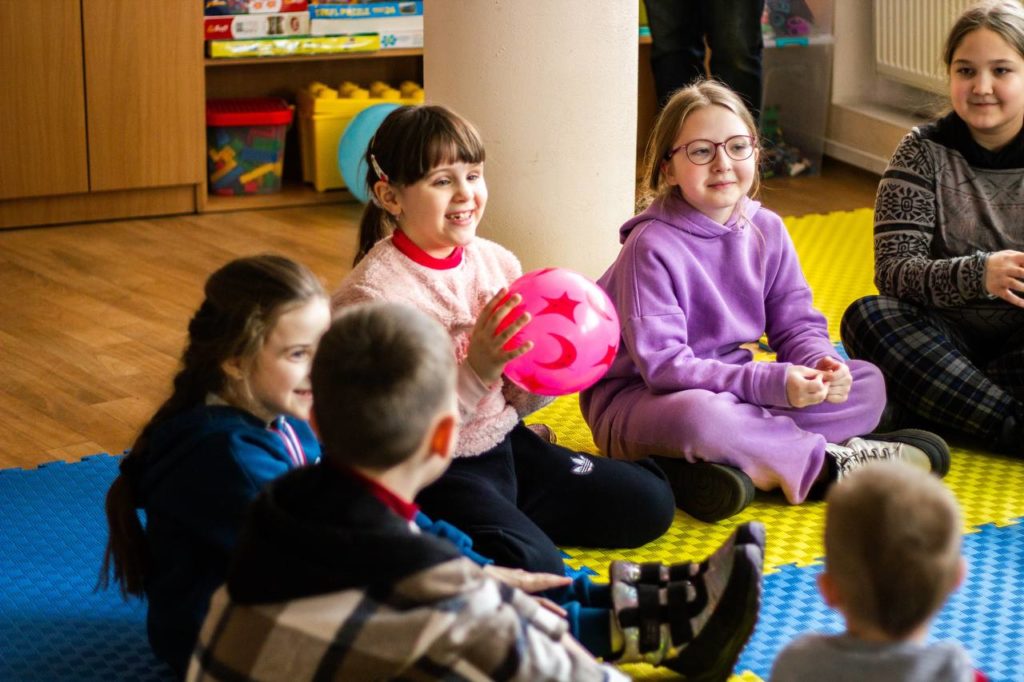
Needs, challenges and relevance:
🟡 Sustainability and continuity of funding for existing services. The need to pay salaries for staff working with children and adults and renting premises. Interruptions in funding lead to the loss of specialists and frequent rotation, forced relocation, loss or damage to equipment, furniture and inventory. Sustainability of projects improves the well-being of children during the war, as it requires sufficient time to build relationships, regular personal meetings and uninterrupted classes with groups. Individual services of narrow specialists should also not be interrupted until the case is completed, as this can further traumatize a person.
🟡 Ensuring compliance with international standards, transparency, accountability and visibility to beneficiaries, the public and partners requires sufficient resources for administrative staff and supportive staff, which usually difficult to find funding for.
🟡 Assistance in the process of returning children from the uncontrolled territories, abducted children or orphans from abroad is a new challenge that requires a quick response and additional resources, such as a coordinator, lawyer, psychologist or psychotherapist, funds to reimburse parents/guardians’ transport costs, accommodation and other basic needs of the child and his/her relatives/guardians.
🟡 Provision of alternative energy sources, other equipment and supplies in case of blackouts and deteriorating conditions in the cold season to create appropriate conditions for the work of children’s centers – batteries, powerful power banks, diesel generators and fuel for them, flashlights and battery-powered lamps, hot water thermoses, sleeping bags and blankets, etc.
🟡 Strengthening cooperation with the Ministries (Ministry of Education and Science, Ministry of Social Policy, Ministry of Reintegration of the Temporarily Occupied Territories) and harmonization of approaches, participation in improving educational and social services, implementation of the new Resilience center service, the Program of psychosocial support for children in educational institutions and other programs that can potentially be funded by the state, which requires additional human and material resources.
🟡 Development and improvement of new educational programs – Preschool education, Children’s entrepreneurship and career guidance, Children and youth self-government and other programs.
